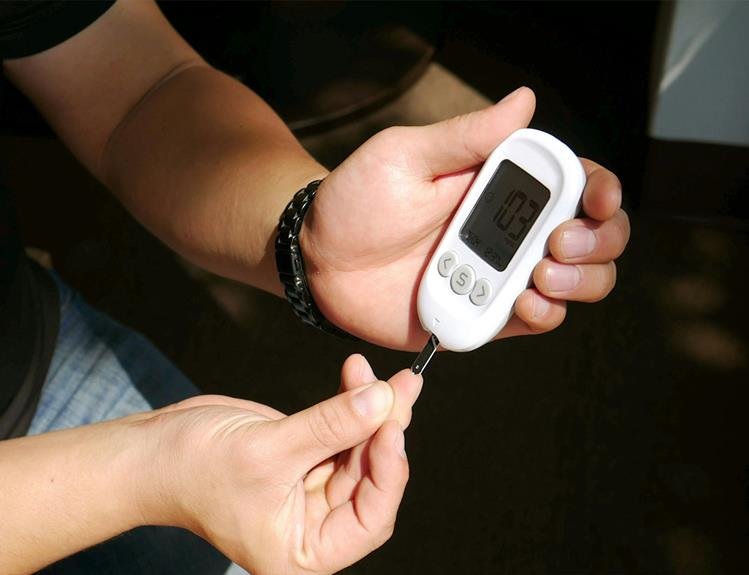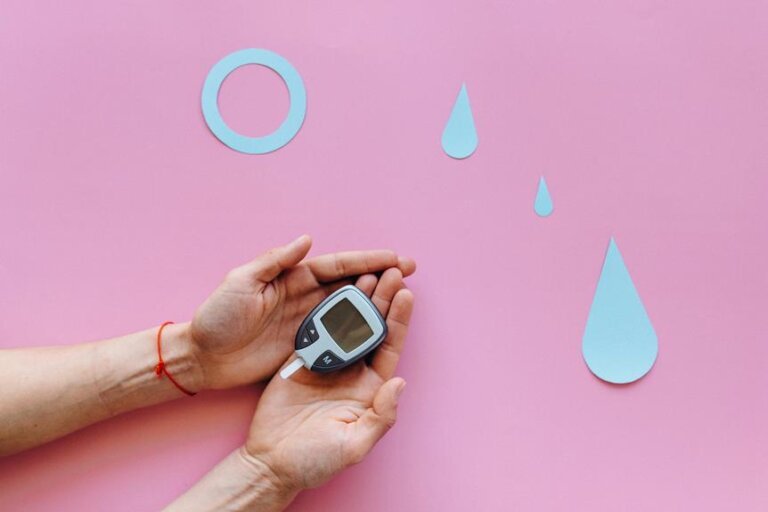can type 2 diabetes be reversed permanently
type 2 diabetes, also known as adult-onset diabetes, is a chronic metabolic disease that affects millions of people worldwide. This condition is characterized by high levels of sugar in the blood, as the body either does not produce enough insulin or cannot effectively use the insulin it produces. If left unmanaged, diabetes can lead to serious health complications, such as heart disease, nerve damage, and vision loss. While the traditional approach to managing type 2 diabetes involves medication and lifestyle changes, there is growing interest in whether this condition can be reversed permanently. In recent years, there have been claims of successful reversals of type 2 diabetes through dietary changes, weight loss, and other natural methods. However, is it truly possible to reverse this disease permanently? In this article, we will delve into the scientific evidence and expert opinions to explore the question: Can type 2 diabetes be reversed permanently?
Proper diet and exercise essential.
Maintaining a proper diet and engaging in regular exercise are crucial components when it comes to managing and improving the health of individuals with type 2 diabetes. By adopting a balanced and nutritious eating plan, individuals can effectively control their blood sugar levels, reduce the risk of complications, and potentially achieve weight loss goals. Incorporating physical activity into daily routines further enhances the body’s ability to utilize insulin effectively and improves overall cardiovascular health. While type 2 diabetes cannot be reversed permanently, the combination of a healthy diet and regular exercise can significantly help in managing the condition, improving overall well-being, and reducing the need for medication or insulin dependence.
Consider weight loss surgery option.
Consider weight loss surgery as a potential option for individuals struggling with significant obesity and related health conditions, including type 2 diabetes. Bariatric surgery, such as gastric bypass or gastric sleeve procedures, has been shown to have profound effects on weight loss and metabolic improvements. These surgeries work by altering the digestive system, leading to reduced food intake and absorption. As a result, patients often experience substantial weight loss, improved blood sugar control, and a reduction in dependency on diabetes medication. However, it is important to remember that weight loss surgery is not without risks and should be carefully considered after consultation with a healthcare professional to determine its appropriateness for individual circumstances.
Monitor blood sugar levels regularly.
Regular monitoring of blood sugar levels is essential for individuals with type 2 diabetes. By regularly checking blood sugar levels, individuals can gain valuable insights into how their bodies are responding to diet, exercise, and medication. Monitoring allows for early detection of any spikes or drops in blood sugar levels, enabling prompt intervention to prevent complications. Additionally, tracking blood sugar levels helps individuals make necessary adjustments to their diabetes management plan in collaboration with their healthcare team. Consistent monitoring empowers individuals to take control of their health and make informed decisions to effectively manage their condition.
Medications can help manage symptoms.
In the management of type 2 diabetes, medications play a vital role in helping individuals effectively control their symptoms. Prescription medications, such as oral antidiabetic drugs and injectable insulin, can help regulate blood sugar levels by enhancing the body’s ability to utilize insulin or by increasing insulin production. These medications work in conjunction with lifestyle modifications, including a healthy diet and regular exercise, to achieve optimal glycemic control. It is important for individuals with type 2 diabetes to work closely with their healthcare provider to determine the most appropriate medication regimen based on their specific needs and health status. By adhering to a comprehensive treatment plan that includes medication management, individuals can experience improved blood sugar control, minimize the risk of complications, and enhance their overall well-being.
Consult with a healthcare professional.
When seeking to address the question of whether type 2 diabetes can be reversed permanently, it is crucial to consult with a healthcare professional who specializes in diabetes management. These professionals possess the knowledge and expertise to evaluate individual medical histories, conduct thorough assessments, and provide personalized recommendations based on the unique circumstances of each patient. They can offer guidance on appropriate lifestyle modifications, including dietary changes, regular physical activity, and weight management strategies. By working collaboratively with a healthcare professional, individuals can receive the necessary support and guidance to effectively manage their diabetes and potentially improve their long-term health outcomes. It is essential to prioritize open and honest communication with healthcare providers to ensure that treatment plans are tailored to individual needs and goals, leading to the best possible outcomes in managing and potentially reversing type 2 diabetes.
Explore natural remedies and supplements.
In addition to working closely with a healthcare professional, it may also be beneficial to explore natural remedies and supplements as adjunctive therapies for managing type 2 diabetes. While these options should never replace traditional medical treatments, some research suggests that certain natural remedies and supplements may offer potential benefits in controlling blood sugar levels and enhancing overall metabolic health. Examples include cinnamon, which has been shown to improve insulin sensitivity, and alpha-lipoic acid, which may help reduce oxidative stress and inflammation associated with diabetes. However, it is important to approach these options with caution and discuss them with a healthcare professional before incorporating them into a diabetes management plan. They can provide appropriate guidance, evaluate any potential interactions with existing medications, and ensure safe and effective integration of natural remedies and supplements into an individual’s overall treatment approach.
Make lifestyle changes for longevity.
While the focus of this document is on the potential reversal of type 2 diabetes, it is important to recognize that making lifestyle changes for longevity extends far beyond the management of this condition alone. Adopting healthy habits can have a significant impact on overall health and well-being, potentially reducing the risk of chronic diseases and promoting a longer, more fulfilling life. Incorporating regular physical activity, maintaining a balanced and nutritious diet, managing stress levels, getting adequate sleep, and avoiding harmful habits such as smoking or excessive alcohol consumption are all key elements of a lifestyle that promotes longevity. These changes may not only contribute to the prevention and control of type 2 diabetes but also support optimal health in various other aspects. It is essential to work closely with healthcare professionals to develop a personalized plan that addresses individual needs and goals, ensuring the most effective approach to long-term health and longevity.
Stay informed and proactive always.
Remaining informed and proactive should be a fundamental aspect of our approach to personal health and well-being. In an ever-evolving landscape of medical advancements and research, staying informed allows us to make educated decisions about our health. By actively seeking out reliable sources of information, such as reputable medical journals or trusted healthcare professionals, we can stay updated on the latest findings and recommendations pertaining to our health concerns. Being proactive goes hand in hand with staying informed, as it involves taking initiative to implement positive changes in our lives. Whether it’s scheduling regular check-ups, monitoring our blood sugar levels, or consistently adhering to a prescribed treatment plan, being proactive empowers us to take control of our health journey. By staying informed and proactive, we can make informed decisions and take the necessary steps to improve our overall well-being.
While the idea of reversing type 2 diabetes may sound too good to be true, there is evidence to suggest that with proper lifestyle changes, it is possible to achieve long-term remission. However, it is important to remember that each individual’s journey with diabetes is unique and there is no one-size-fits-all approach. Consulting with a healthcare professional and making gradual, sustainable lifestyle changes is key to managing and potentially reversing type 2 diabetes. With dedication and support, it is possible to achieve a healthier and happier future.




